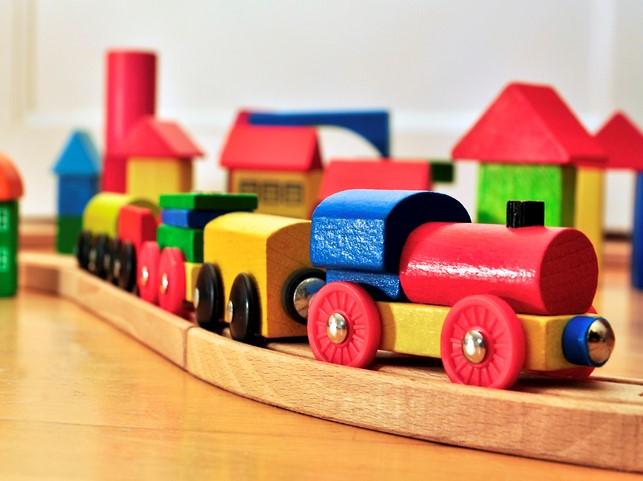20 pledges for 2020: My quest to be a sustainable parent is a tale of two trains
Public transport with child in tow? It surely shouldn’t be this difficult – or expensive, writes Colin Drury


It’s been a tale of two trains in my new year pledge to be a more sustainable parent. Or, rather, two types of trains: real ones and toys.
The former first: I’ve all but abandoned the car now. A single work journey excluded, I haven’t used it at all in the last three weeks or so.
This, I think, is not an insignificant achievement with a little one in tow. Mainly because, as anyone who uses public transport outside of gilded London knows, the only place public transport actually gets you with any speed is to the conclusion that, in fact, public transport if not fit for purpose.
Over the last three weeks, both trains and buses have stood us up or left us waiting. It goes without saying they have charged us extortionate amounts for this pleasure. A £4.80 fare for a 15-minute journey in my home city of Sheffield was a particular lowlight.
This, for the record, has been inconvenient but nothing much worse. We’re fortunate in that we don’t need such transport to get us anywhere important or time-specific. If we were having to use a local service on the daily for travelling, for example, to nursery, I may well already have sacked sustainability off. I mean, saving the planet’s all well and good but you can’t be missing porridge time, can you?
This, I think, may make for a wider point.
It’s clearly too simplistic to say that improving public transport would automatically get more people out of cars and reduce pollution. There’s some evidence, indeed, that such upgrades – especially on buses – have no real impact on uptake at all. In London, where TfL has made concerted efforts to create a world-leading bus service (and with fares pretty much the lowest in England), customer numbers have still dropped by five per cent over five years.
Yet the fact that standards remain so low outside the capital surely makes it all but impossible to grow wide support for discouraging driving. People need their cars, so goes the (perfectly reasonable) argument, because public transport is so bad.
By chance, one of the train journeys I made (without the rug rat) was to Bristol to meet Steve Melia, a senior academic with the Centre for Transport and Society at the University of the West of England.
His belief – and he’s spent decades studying this stuff – is that, if services were made more frequent and reliable, passenger numbers may not increase immediately. But, crucially, the long-term effect would be to render obsolete the argument that (most) people are reliant on private vehicles. It would allow a culture shift.
On the top deck of the number 52, I sit and hope it happens before my little companion is herself of driving age.
In any case, to the toy train.
We’ve vowed we will eschew all new plastic toys this year and buy only second hand or – at a push – wooden and sustainable stuff. In this spirit, we got a wooden train set last week. Possibly it’s still a bit old for her but, then, when she goes to bed, I won’t deny I enjoy having a bash on it.
Here’s the complaint: it wasn’t cheap. Sustainable products hardly ever are. Plastic tat is almost always more affordable and often lasts just as long.
So, two questions from that.
The first: is there an argument for wider tax breaks and subsidies for companies dealing only in sustainable products? That is to say: shouldn’t firms which can verifiably be shown to have minimal environmental impact be supported by the state in keeping costs down? Why not? Saving the planet doesn’t seem like something that should be left to market forces alone.
And the second question, mainly to my editor: now I’ve written about the train set, any chance I can put it on expenses?
Join our commenting forum
Join thought-provoking conversations, follow other Independent readers and see their replies
Comments
Bookmark popover
Removed from bookmarks